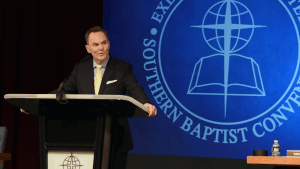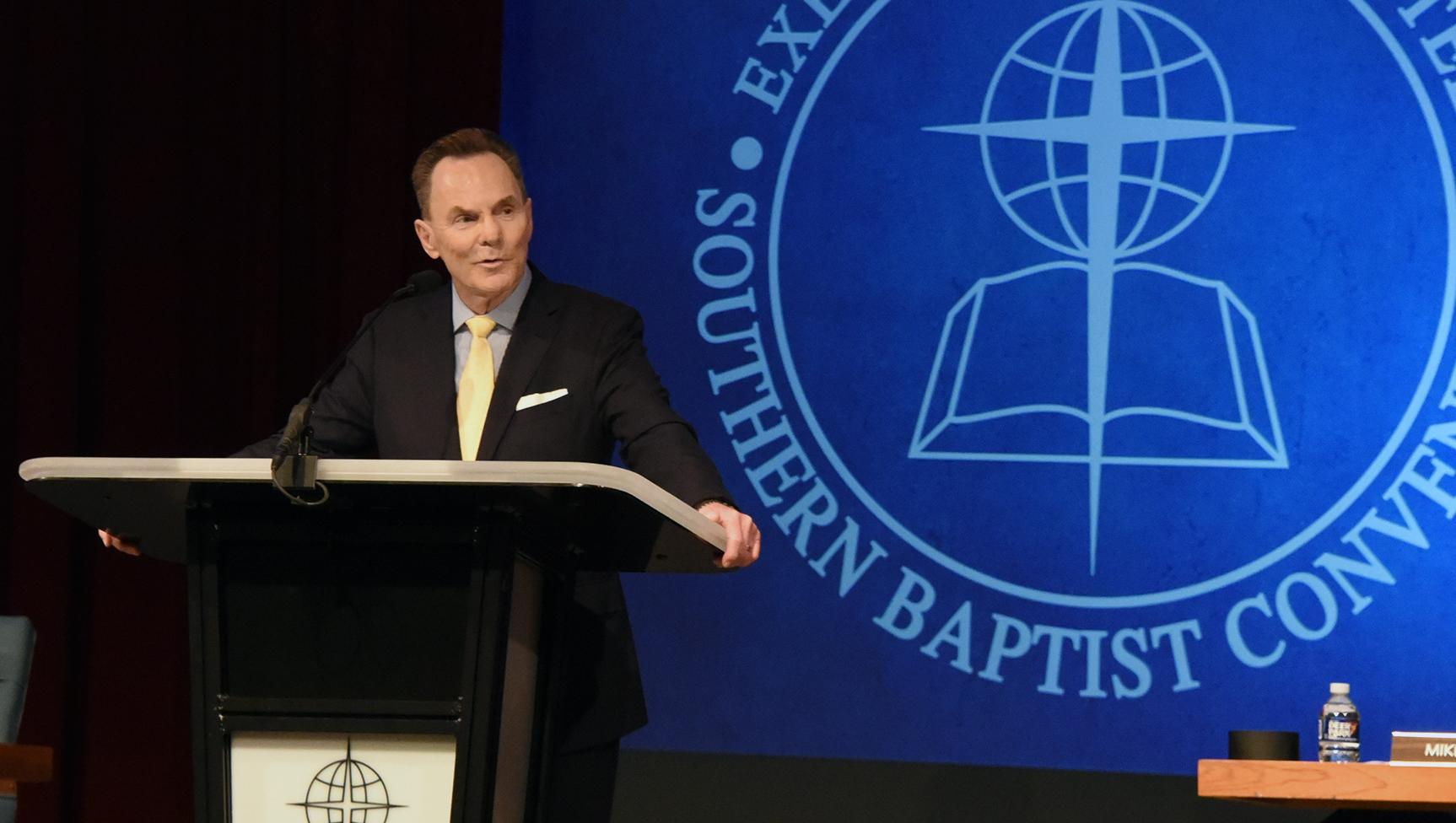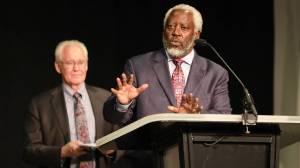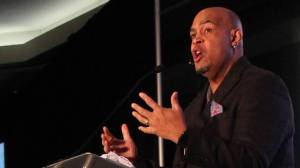In this series

Ronnie Floyd is the latest to leave the Southern Baptist Convention’s Executive Committee (EC) over its decision to hand over privileged documents in an upcoming abuse investigation.
Floyd, the president and CEO of the EC, announced in an email Thursday night that he could no longer serve in the role, which he has held for two years. His resignation is effective October 31.
In the past couple weeks, more than ten members of the EC left around the much-debated vote on attorney-client privilege, and the EC’s longtime attorneys, James Guenther and James Jordan, withdrew their legal services.
In his resignation letter, Floyd repeated his commitment to the outside review of the EC, but continued to emphasize the potential risks and liability of waiving privilege.
“The decisions made on Tuesday afternoon, October 5, in response to the 2021 Convention now place our missionary enterprise as Southern Baptists into uncertain, unknown, unprecedented and uncharted waters,” he wrote.
“Due to my personal integrity and the leadership responsibility entrusted to me, I will not and cannot any longer fulfill the duties placed upon me as the leader of the executive, fiscal, and fiduciary entity of the SBC. In the midst of deep disappointment and discouragement, we have to make this decision by our own choice and do so willingly, because there is no other decision for me to make.”
Rolland Slade, EC chairman, told Baptist Press, “I am saddened by his resignation. He’s had a tremendous ministry for years and years. I know he loves Southern Baptists. I know it was his intention to come to Nashville to serve Southern Baptists well and I believe he’s fulfilled that to the best of his ability. However, I understand the vote of the committee put him in a very difficult position.”
Floyd spent more than 30 years as pastor of Cross Church in Arkansas and served as SBC president from 2014 to 2016 before becoming EC president in 2019, in the midst of convention-wide efforts to address the SBC’s response to sexual abuse. He succeeded Frank Page, who resigned in 2018 over a “morally inappropriate relationship.”
The denomination voted at its annual meeting in June to investigate how the EC responded to abuse claims and survivors over the past 20 years.
Floyd, as EC president, was not a voting member but sided with those who supported the investigation but opposed waiving privilege.
“Like almost all of you, I do not have a vote on the Board of Trustees, but I do have a vote in heaven from my knees. I am praying to the God of Heaven to perform a miracle that will bring us all together,” he wrote in an October 1 open letter, once again emphasizing the EC’s fiduciary responsibilities.
Leaked materials ahead of the annual meeting, which prompted the call for a third-party investigation, included a recording of a discussion in which Floyd spoke of preserving “the base” of the denomination rather than being concerned about what survivors could say.
After the material was made public, Floyd responded by saying he did not have “the same recollection of these occurrences as stated” but did take the allegations seriously. In his resignation letter, he wrote, “One of the most grievous things for me personally has been the attacks on myself and the trustees as if we are people who only care about ‘the system.’ Nothing could be further from the truth.”
EC member Joe Knott, who also worried that waiving attorney-client privilege could put the SBC at legal risk, characterized the upcoming investigation as a chance to “vindicate Ronnie Floyd without destroying the Southern Baptist Convention.”
During his tenure as EC president, Floyd set new benchmarks for missionaries, church planting, giving, and youth discipleship through his Vision 2025 plan. Some Southern Baptist leaders, including EC president emeritus Morris H. Chapman and Midwestern Baptist Theological Seminary president Jason Allen, extended prayers for Floyd, and former EC member Chuck Williams, who resigned October 1, tweeted his support.
Those who believed waiving privilege was the right thing to do for the sake of the integrity of the investigation and the polity of their convention questioned Floyd’s leadership around the issue, and some wanted to see him leave the position.
Ahead of the October 5 meeting, one trustee told CT he considered a vote of no confidence against EC leaders, saying Floyd and Vice President Greg Addison “had not led or supported the efforts of this trustee body to abide by the will of the messengers of our convention,” which called for the investigation and waiver.
Earlier this week, prior to Floyd ’s resignation, EC trustees had requested to call a special meeting to address vacancies and leadership.
According to its bylaws, following a presidential resignation, the EC’s board of trustees can elect a six-member search committee, which can receive nominations, along with the board chair.















